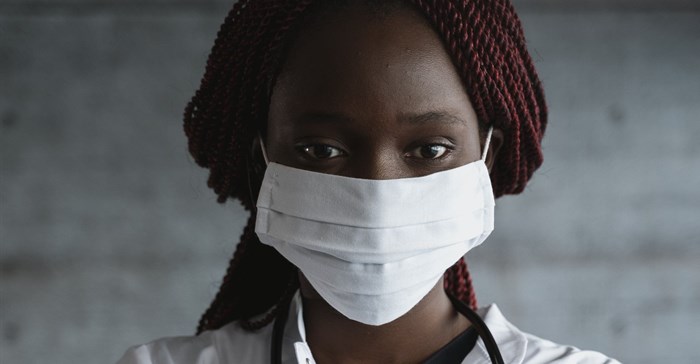The coronavirus pandemic has undoubtedly placed immense strain on healthcare systems globally.
When the pandemic hit our shores in March 2020, healthcare providers embraced virtual technology in unprecedented numbers to ensure they could continue to serve patients despite restrictions on in-person interactions.
During this period the industry was able to achieve collaborative reforms which helped it respond to ongoing shifts in healthcare needs, consumer behaviour and the economy.
For the first time, PwC’s healthcare consulting team assessed the state and future prospects of South Africa’s healthcare industry while it underwent this period of immense transformation. The team surveyed 31 C-suite leaders of South African healthcare public, private and donor organisations by conducting in-depth interviews and online digital surveys.
The assessment was aimed at understanding the biggest risks, threats and opportunities facing healthcare organisations, identifying the biggest industry innovations and disruptions expected in the next five years, and Covid-19’s impact.
Five key insights emerged from this survey. These findings can be used by company executives and other decision-makers to map the course of their organisation's transformation:
National Health Insurance (NHI) will revolutionise South Africa’s healthcare landscape and create opportunities for public-private collaboration and innovation.The Covid-19 pandemic has rapidly transformed the outlook of healthcare organisations in terms of their preparedness and resilience measures.The future of healthcare is brighter than ever with innovation and technical disruption progressing in leaps and bounds.The healthcare industry needs an increased focus on Environmental, Social, Governance (ESG) initiatives and measurements.Cybersecurity is critical for all organisations and is becoming an increased threat as data volumes increase.Is South Africa ready for NHI?
The National Health Insurance (NHI) is a healthcare financing system designed to pool funds to provide universal access to quality, affordable healthcare services for all South Africans and long-term residents.
All survey participants support the model and intent of NHI, with half the respondents believing NHI will guarantee or partially guarantee equal access to healthcare.
Concerns expressed about NHI included the need for clarity around the coverage and range of benefits, governance structures, the risk of corruption, healthcare workers' capacity, and the impact of these factors on the ability of the NHI to deliver universal healthcare.
Shirley Machaba, PwC South Africa's chief executive officer, says: “In a time when the global pandemic has highlighted the need for equitable, quality healthcare for all South Africans, it is imperative that we join hands to collaborate on building a healthcare system that benefits society as a whole.”
Patrick Tippoo 22 Jun 2022 Covid-19 accelerated change in healthcare
Covid-19 presented both opportunities and challenges to the healthcare industry. 50% of survey respondents said the pandemic accelerated their organisation’s journey to reach its goals. While 21% of respondents said there were no setbacks for the organisation due to the pandemic.
Etienne Dreyer, PwC South Africa healthcare consulting leader, says: “The sense of urgency in our collective response to Covid-19 rallied stakeholders around a common purpose.
"As a result, healthcare organisations are largely witnessing an accelerated digital transformation, not just in data and analytics, but across the entire healthcare ecosystem allowing them to progress towards their long intended goals.”
In terms of a commercial impact, 40% of respondents reported a decrease in revenue and profits in their organisation, while 24% reported an increase. Dreyer adds that “many organisations faced initial revenue loss due to increased restrictions and lockdowns, however organisations that were critical for administering Covid-19 medicine, personal protective equipment (PPE) and oxygen supply had increased revenue.
"On the other hand, reductions in elective surgeries and other healthcare utilisation contributed to reduced revenue for many clinical organisations. Additionally, large capital expenditures were made by these organisations in technology to support virtual care for patients.”
A staggering 69% of respondents said Covid-19 negatively impacted the morale, engagement and productivity of their workforce. However, 81% of organisations said they had worked on programmes related to improving mental health.
Future of healthcare is all about innovation
The survey’s respondents believed that the greatest level of disruption in the healthcare industry will come from reimbursements, followed by population demographics and research and development (R&D).
NHI will bring about fundamental changes in the healthcare reimbursement landscape. However, other factors like South Africa’s ageing population, obesity and the rise of non-communicable diseases is also adding pressure. Dr Sana Charania, PwC South Africa healthcare consulting manager says:
“With changing demographics and disease profiles, R&D for new innovative health solutions and management will be required. Our survey shows that 37% of respondents believe that improvements in healthcare will be brought about by innovation, and many organisations are gearing up to embrace innovation and technology.”
Healthcare needs an increased focus on ESG
Environmental, Social and Governance (ESG) efforts have been on the rise globally in the healthcare industry. The survey indicates that 29% of organisations are not currently ESG focused.
Shirley Machaba, PwC South Africa's chief executive officer, says: “The healthcare industry has always embraced the social pillar of ESG efforts due to its focus on developing medicines, vaccines and devices. However, our research shows that many healthcare leaders are demonstrating a higher focus on social aspects such as improving access to medicine, particularly cost-effective medicines and investments in generics.”
Protecting the industry against cyber attacks
With the rise of new technologies such as artificial intelligence (AI), robotics, and the Internet of Things (IoT), the likelihood and impact of cyber attacks are increasing, making good cybersecurity practices imperative.
As the threat landscape changes, attackers are starting to exploit novel situations, rapid technological and organisational change, and uncertainty, which was demonstrated by the Covid-19 pandemic. For example, 2020 saw a 40% increase in cyberattacks.
Johannes Grove, PwC South Africa medical-schemes leader, says: “The digital revolution brings new risks, but can also be used to design security into systems from the beginning and move away from legacy information technology.
The healthcare sector of South Africa is aware of this and is investing heavily as it enters into the digital age.
”Our survey shows that only 21% of respondents felt totally secure from cyber attacks, indicating that healthcare organisations in South Africa need to focus more on cybersecurity, especially considering the risk it poses to patient's personal data.
Reimagining healthcare in South Africa
The Covid-19 pandemic has transformed the healthcare landscape, which means that going back to the same old way of doing business is no longer an option.
Dreyer says: “Healthcare organisations have the opportunity to build on the lessons they learned in 2020 and 2021 by establishing a stronger footing on the balance between in-person and virtual care, embracing digital technologies and analytics to improve operations, investing in local manufacturing, building resilient supply chains, and increasing their focus on ESG — all while protecting themselves from threats such as cyberattacks.”
Healthcare organisations that do so will grow stronger, more resilient, and more effective in both their clinical and business outlook. The industry has a golden opportunity to come together and prepare for the momentous NHI and deliver equitable access and better health outcomes for all, with more affordable costs and sustainable outcomes for the people of South Africa.




































